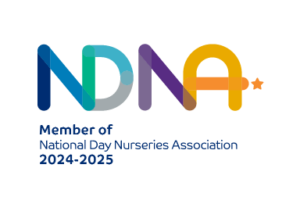LOVELL INTERNATIONAL SCHOOL
Early Years

As an international school we believe that education should be a seamless blend of the best methodologies from around the world, providing our students with a well-rounded and holistic learning experience. This is why we have chosen to incorporate the British, Early Years Foundation Stage (EYFS) and Key Stages 1 and 2 British National curriculum as a supportive framework for our Reggio Emilia inspired philosophy. The British EYFS curriculum is renowned for its comprehensive approach to early childhood education. It aligns perfectly with the principles of the Reggio Emilia philosophy, emphasising child-centered learning, open-ended exploration, and the importance of nurturing individual creativity and critical thinking and executive function skills EF. By combining these two approaches, we offer our students a unique educational journey that encourages curiosity, independence, and a love for learning.
Furthermore, the British EYFS curriculum’s focus on personal, social, and emotional development complements the Reggio Emilia’s strong emphasis on relationship-building, collaboration, and a deep sense of community. Together, these frameworks provide a solid foundation for our students to grow, explore, and thrive in an environment that values their voices, questions, and unique perspectives.
By embracing both the British National Curriculum , EYFS , Key stages 1 and 2, and the Reggio Emilia philosophy, we ensure that our students receive a world-class education that prepares them to become confident, creative, and globally-minded individuals, ready to face the challenges and opportunities of our rapidly changing world.
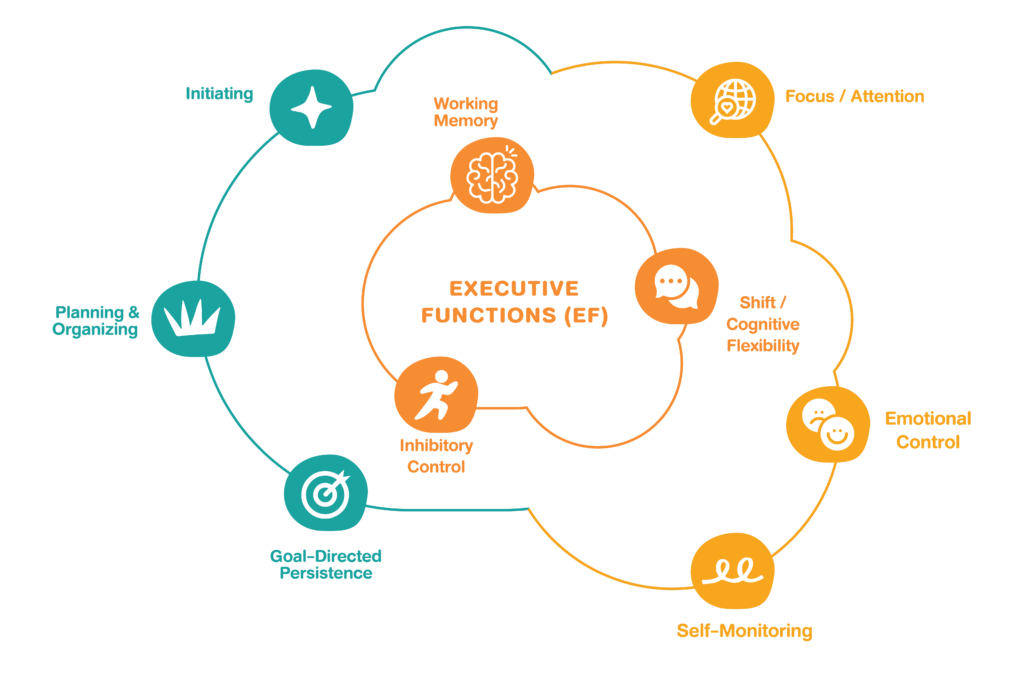
Communication and Language: This area focuses on developing children’s speaking and listening skills, building vocabulary, and promoting effective communication.
Physical Development: Physical well-being and motor skills are emphasized here, including both fine and gross motor development, promoting healthy lifestyles.
Personal, Social, and Emotional Development: This area encourages children to build self-confidence, manage their feelings, and interact positively with others, nurturing their emotional and social well-being.
Literacy: Children are introduced to reading and writing through activities that develop early literacy skills, such as phonics, storytelling, and recognizing letters and words.
Mathematics: Basic numeracy skills are developed, including counting, understanding numbers, and exploring shapes, patterns, and measurement.
Understanding the World: This area promotes curiosity about the world and fosters knowledge about people, communities, the environment, and technology.
Expressive Arts and Design: Creative expression is encouraged through art, music, and drama, allowing children to explore their imagination and develop artistic skills.

A Reggio Emilia-inspired kindergarten places the child at the center of the learning process, prioritizing their interests, curiosity, and active engagement. This philosophy values each child’s unique abilities and ideas, fostering a student-centered environment. Learning is project-based, encouraging critical thinking, problem-solving, and creativity. The curriculum is flexible, adapting to children’s evolving interests and needs, with a focus on artistic expression through various mediums. Collaborative learning promotes communication, empathy, and teamwork. Documentation is key, allowing reflection on the learning journey, and parents are actively involved through digital journals and newsletters. As a Reggio Emilia-inspired kindergarten Lovell aims to create a dynamic, enriching environment that instills a lifelong love for learning and a sense of community responsibility.
Reggio Emilia-inspired kindergartens prioritise the child’s interests, curiosity, and active involvement in the learning process. This approach values the unique abilities, thoughts, and ideas of each child, fostering a student-centered environment. Teachers plan activities which allow children to explore and learn using their interests.
In a Reggio Emilia- inspired kindergarten, learning is often organised around long-term, in-depth projects that emerge from children’s interests. These projects encourage critical thinking, problem-solving, collaboration, and creativity, providing children with opportunities for meaningful exploration and discovery.
The curriculum in a Reggio Emilia-inspired kindergarten is flexible and responsive to the interests and ideas of the children. Teachers carefully observe and document children’s learning processes, adjusting the curriculum to match their developmental needs and incorporating their input into the learning experience.
Reggio Emilia-inspired kindergartens place a strong emphasis on the arts, including visual arts, music, dance and drama. These forms of expression are considered essential tools for children to communicate, explore, and represent their understanding of the world. Children are given lots of process art projects using natural dyes and paint-sun sensitive paper.
Children are encouraged to work together, share ideas, and learn from one another through group projects and discussions. This approach fosters the development of communication skills, empathy, and teamwork.
Reggio Emilia-inspired kindergartens place importance on documenting children’s learning processes and displaying their work. Documentation allows teachers, children, and parents to reflect on the learning journey and make connections between different experiences and concepts.
Documentation is shared with parents through an Online Digital journal which gives the weekly highlights of each individual child. Class newsletter tells parents about the different projects happening in class and the school newsletter tells parents about the different projects throughout the school.
Reggio Emilia-inspired kindergartens value strong partnerships between parents and educators. Parents are seen as active participants in their child’s learning journey and are encouraged to collaborate, share their insights, and engage in school activities and events.
At Lovell International School, our approach harmoniously blends the Early Years Foundation Stage (EYFS) curriculum with the Reggio Emilia philosophy, placing great emphasis on play-based learning.
Nursery
In our Nursery program, consisting of Pre-nursery 2-3 years and Nursery 3-4 years classes, we acknowledge that the development standards of the British Early Years Foundation Stage curriculum do not rigidly align with specific age groups. We encourage and support children’s progression at their individual pace across developmental areas, embracing both accelerated and gradual advancements.
• Pre nursery Half day programme – 9 :00 am – 12:30 children go home straight after lunch
• Pre- Nursery Full day programme 9:00 am – 2:30 am Children have an afternoon nap after lunch
Read more about Pre-nursery and Nursery classes (Age 2 – 4 yrs)
Reception Class (4-5 yrs)
In Reception, we recognise that the developmental markers of the British Early Years Foundation Stage curriculum are not strictly defined by age. Our aim is to support children at their own place, encouraging advancement while providing assistance to those who may need it.
Key Stage 1 : Year 1 (5-6 yrs)
Play becomes increasingly intricate with more complex rules devised and explained among peers. Utilising fine and gross motor skills adeptly, children create detailed structures indoors and outdoors using tools and equipment.

Nature-Based Learning
Lovell combines the principles of Reggio Emilia philosophy with the benefits of Forest school outdoor education. Children spend time in our green space natural environment, with its trees, grass and flower and vegetable gardens, allowing them to connect with nature and experience hands-on learning in a rich and stimulating outdoor setting.
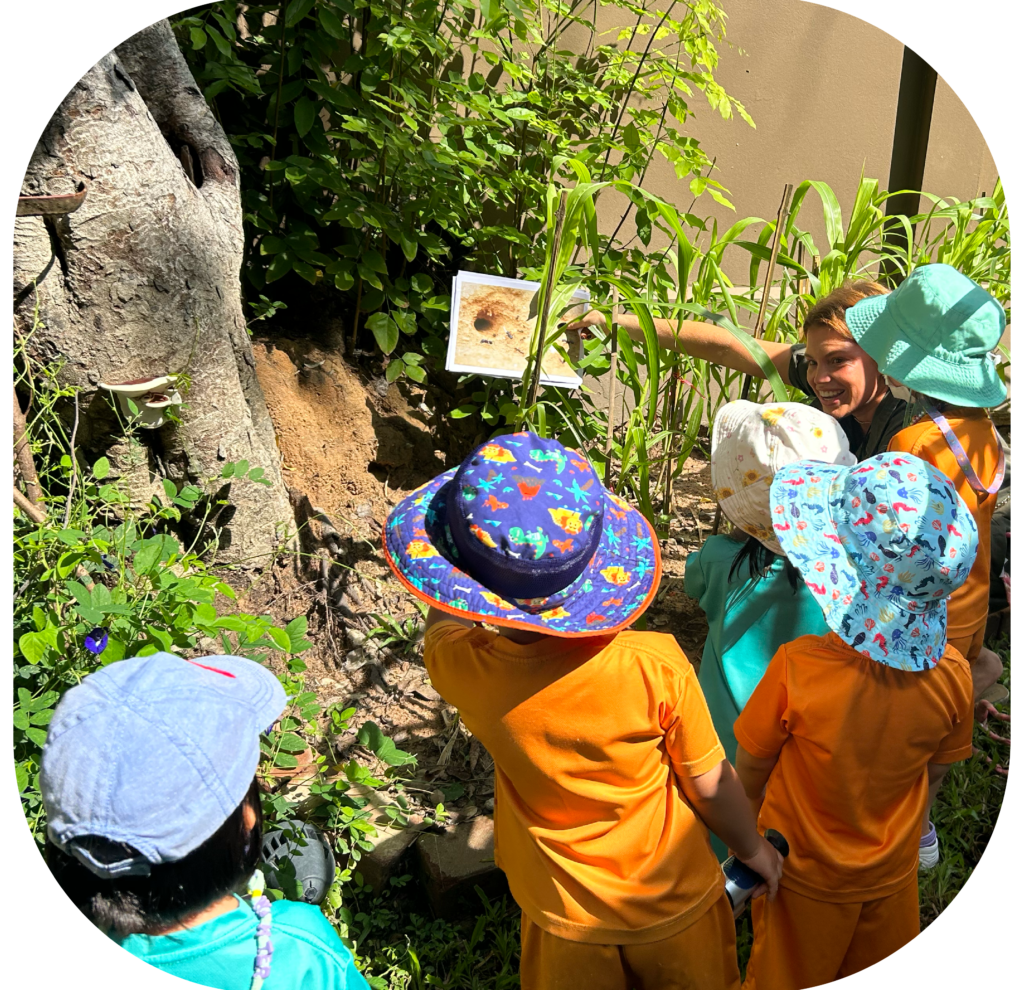
Holistic Development
Nature-based approach promotes holistic development, encompassing cognitive, physical, social, emotional, and creative aspects of a child’s growth. Children have freedom to explore natural materials, investigate their surroundings, ask questions, and seek answers through hands-on experiences.

Sensory Stimulation
Nature offers a rich sensory experience for children, providing them with opportunities to engage their senses touching different textures, smelling plants and flowers, listening to the sounds of nature. This sensory stimulation contributes to cognitive development and enhances overall well-being.

Risk-taking and Resilience
Lovell’s outdoor environment provides a balance between challenge and safety, allowing children to take appropriate risks in a supportive and supervised setting. This fosters resilience, self-confidence, problem-solving skills, and a sense of adventure.

Collaboration and Community
‘Lovell Forest’ settings promote collaboration, teamwork, and social interaction. Children engage in cooperative activities, group projects, and nature-based games, fostering positive relationships, communication skills, and a sense of community.

Parent Involvement
“Love Earth” activities often encourage active involvement from parents in various outdoor activities, nature walks, or parent-child workshops. This involvement strengthens the partnership between parents and school, allowing for shared experiences and mutual support.
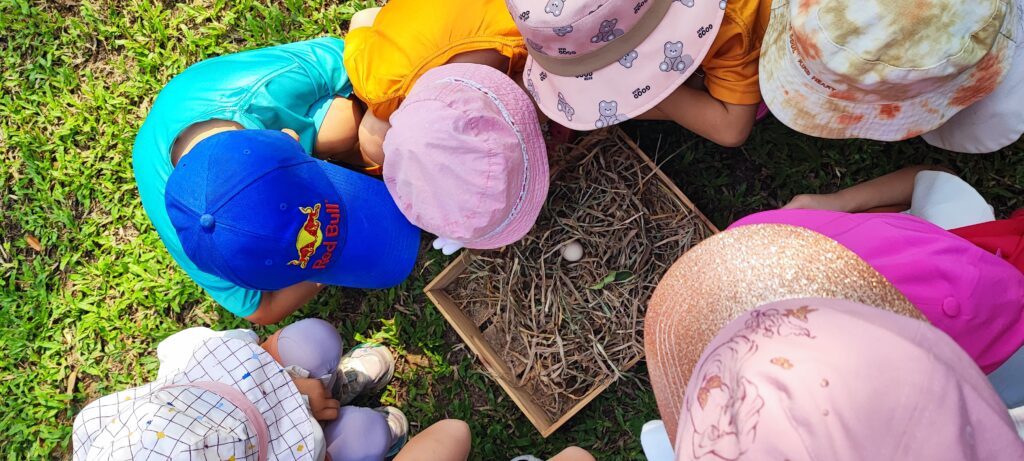
Love Earth Projects
At Lovell Forest, we are passionate about instilling a deep respect and appreciation for the environment in our students. Through our “Love Earth” projects, children actively engage in hands-on activities that promote environmental stewardship and sustainability. Some of our projects include: Nature Hunt, Recycling Initiatives, Chicken Coop, Gardening Projects.
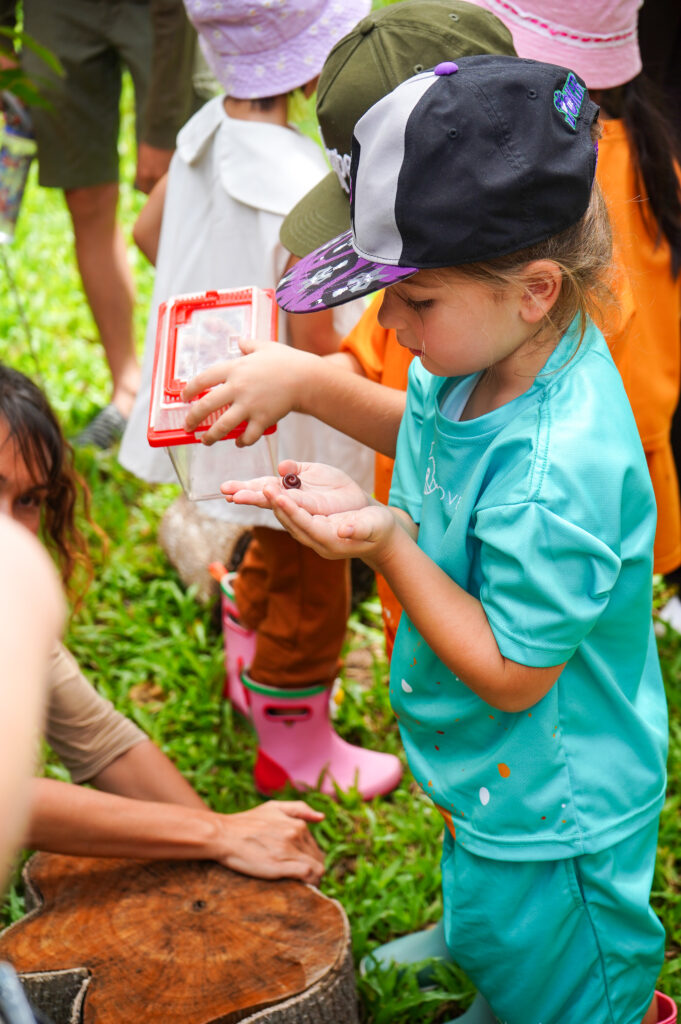
Every Life is Important
At Lovell Forest, we believe in nurturing a sense of reverence for all living beings, no matter how small. Through our “Every Life is Important” initiative, children have the opportunity to explore the fascinating world of insects and other small creatures. Some highlights include: Bug World activities, collecting eggs and watching chicks hatch and grow.
Through these initiatives, we aim to cultivate in our students a deep sense of respect, empathy, and responsibility towards all living beings, fostering a lifelong commitment to environmental sustainability and stewardship.

